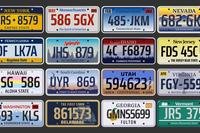Yesterday, we talked about the various extras that rental car companies offer to you. They also have a wide variety of insurances that they'll offer. However, you may already have the coverage you need. Let's talk about the various coverages that you probably already have:
Your Car Insurance
If you carry auto insurance, it almost always provides for some coverage for rental cars. The key here is to knowing what your insurance will cover. Call your carrier and inquire about rental car coverage. Ask a lot of questions, because this is confusing stuff.
Your auto insurance will usually pay up to the limits of your regular auto coverage, but it will typically not pay for additional administrative fees, loss of use fees, or loss of value fees.
Your Credit Card
Most credit cards offer some sort of additional protection for rental cars that are paid for with that credit card. Take the time to learn which one of your cards has the best coverage. Some credit cards offer primary coverage (meaning they'll pay first) and some offer secondary coverage (meaning they'll pay after whatever other coverages you have.)
Your Rental Program
Depending on the program under which you rent your car, you might have additional protections due to the agreement between the car company and the company through whom you rented. For example, if you rent from selected companies through USAA, the arrangement between the two companies may waive Loss of Use fees, Loss of Value fees, and Administrative fees. For me, this is the deciding factor in chosing to rent via the USAA program. (Plus, the fabulous rates they offer!)
Things To Consider
Your personal insurance policy only covers comparable vehicles. If you drive a Civic, and you rent an Escalade, you might have trouble.
In addition, be extra thoughtful if you don't have insurance. Let's say you sell your car before leaving on a deployment, and give up your auto insurance. If you rent a car while you are home on R&R, or when you return, you'll need a plan. Paycheck Chronicles reader Amy told me about her experience renting a car when she didn't have her own. She declined coverage, and there was a collision. She was fully responsible for the damage to the vehicle, and had to pay it out of her own pocket.
You can check with your auto insurer to see if they offer an sort of special policy that covers your situation. There are a variety of different coverages that could work, depending on the details.
Insurance when you are renting a car can be confusing and tricky. A little bit of time and a few questions will allow you to approach the rental counter with a head full of knowledge and a plan for how to only purchase the coverage that you need.









